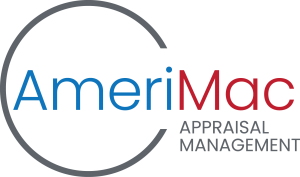
- 877-241-5144
- M-F: 8am to 8pm
Are you considering a reverse mortgage but unsure of what role appraisal plays? In this post, we will cover everything you need to know about reverse mortgage appraisal. We will start by discussing the basics of reverse mortgages and who can benefit from them. Then, we will delve into the importance of appraisal in reverse mortgages and why lenders must determine the value of your home accurately. We will also provide insight into the process of appraisal, including an initial assessment and what appraisers look for. So if you’re curious about reverse mortgage appraisal, keep reading!
A reverse mortgage is a type of loan that allows homeowners to convert a portion of their home equity into cash. It works by using the home as collateral and providing homeowners with funds that they can use for various purposes. Eligibility requirements for obtaining a reverse mortgage include being at least 62 years old, owning a home with sufficient equity, and meeting certain financial qualifications. During a reverse mortgage appraisal, factors such as the condition and value of the home, recent sales of comparable homes, and any required repairs are taken into consideration. Reverse mortgages have their pros and cons, and borrowers can use the funds received from a reverse mortgage for things like paying off debts, covering medical expenses, or simply enhancing their retirement lifestyle.
A reverse mortgage allows homeowners to access their home equity without selling the property. The appraisal is a crucial step in this process, as it determines the value of the home and subsequently, the loan amount. An appraiser, who must be licensed and independent, follows strict guidelines to assess the property’s value. The appraisal report provides details on the home’s condition, features, and any necessary repairs. The appraised value can impact the borrower’s loan amount and interest rate.
Seniors who own their homes and need additional income can benefit from reverse mortgages. Those with substantial home equity but limited retirement savings may also find reverse mortgages helpful. This option allows homeowners to access their home’s equity without selling or moving. Consulting a financial advisor is crucial before making a decision.
Appraisal plays a vital role in the reverse mortgage process, determining the value of your home and how much you can borrow. A licensed and certified appraiser considers factors like location, condition, and comparable home sales in the area. Conducted independently, the appraisal is a part of the loan application process, with its cost typically included in the closing costs. It ensures that the homeowner’s equity aligns with the loan amount and provides a fair valuation based on various factors.
Appraisals are crucial for reverse mortgages because they determine the value of your home, which directly impacts the loan amount you can borrow. They also ensure that the lender makes an informed decision and protects both the borrower and the lender in the long run.
The process of appraisal for reverse mortgages involves several key steps. A reverse mortgage appraisal is conducted to determine the value of your home, which directly affects how much you can borrow. This appraisal is required by lenders and is typically conducted by a licensed and certified appraiser. The appraiser considers factors such as the location, condition, and comparable home sales in the area. The duration of a reverse mortgage appraisal can vary, and there is a cost associated with it. Once the appraisal is completed, the lender will review the report and proceed with the reverse mortgage process.
As part of the reverse mortgage appraisal process, the initial assessment plays a crucial role in determining the value of the property. During this assessment, an appraiser conducts a visual inspection of both the exterior and interior of the home, taking note of any improvements or renovations. Additionally, the appraiser researches comparable properties in the area to determine the market value of the home. A comprehensive report is then provided, outlining the property’s value, required repairs, and potential hazards. This assessment is vital in determining the amount of money that can be borrowed through a reverse mortgage.
Appraisers assess the current value, condition, and necessary repairs of your home. They also consider location, comparable sales, and potential hazards. The final appraisal report determines the maximum amount you can borrow through a reverse mortgage.
During a reverse mortgage appraisal, an appraiser plays a crucial role in determining the value of your home. The appraisal includes an inspection process where the appraiser assesses the property’s condition and considers factors such as recent home sales in the area. To prepare for the appraisal, decluttering and making necessary repairs are essential. A fair and accurate appraisal is important to ensure you receive an appropriate loan amount. It is crucial to understand the significance of a reverse mortgage appraisal in obtaining a favorable loan.
Preparing for a reverse mortgage appraisal? Start by cleaning and decluttering your home. Make necessary repairs and upgrades to boost its value. Provide a list of recent renovations or improvements made. Lastly, be present during the appraisal to answer questions and provide additional information.
In conclusion, understanding the appraisal process in reverse mortgages is essential for both lenders and borrowers. It plays a crucial role in determining the loan amount, ensuring compliance with FHA standards, and assessing the condition of the property. By being aware of the guidelines and preparing your home for appraisal, you can increase the chances of a favorable outcome. Contact us today at AmeriMac!

The fully staffed customer service department at Amerimac Appraisal Management is available Monday through Friday, 8 a.m. EST to 8 p.m. EST.
SIGNUP FOR OUR MONTHLY NEWSLETTER:
Client Testimonials
© Amerimac 2025. Privacy Policy. Website by WMx Digital.